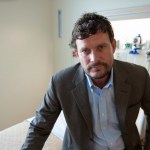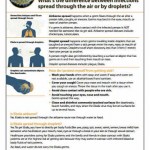ebola
Donald Trump continues his blitz to fulfill all his campaign promises at once, leaving snowflakes aghast and deplorables cheering for the proto-fascism on parade at The White House. On International Holocaust Remembrance Day, Trump issued a statement "in the name of the perished" without any reference to Jews or anti-semitism, and while his Chief of Staff spun this omission a sign of inclusivity, Mark Hoofnagle writes on Denialism Blog that "this is part of a long history of Holocaust denial, in which the experience, memory, and truth of Jewish survivors and victims is diminished and denied…
The Pump Handle is on a holiday break. The following, which was originally published on July 8, is one of our favorite posts from 2016.
by Kim Krisberg
In 2005, the World Health Assembly adopted a revised version of its International Health Regulations, a legally binding treaty among 196 nations to boost global health security and strengthen the world’s capacity to confront serious disease threats such as Ebola and SARS. A decade later, just one-third of countries have the ability to respond to a public health emergency. That’s why Rebecca Katz thinks it’s time to get creative.
“How can we…
The 2013-2016 West African Ebola virus outbreak altered our perception of just what an Ebola outbreak could look like.
While none of the three primary affected countries--Liberia, Sierra Leone, and Guinea-have had a case since April 2016, the outbreak resulted in a total of over 28,000 cases of Ebola virus disease (EVD)--65 times higher than the previous largest EVD outbreak, and more than 15 times the total number of cases of all prior EVD outbreaks combined, from the virus's discovery in 1976 to a concurrent (but unrelated) outbreak in the Democratic Republic of Congo in 2014.
In March 2016…
In 2005, the World Health Assembly adopted a revised version of its International Health Regulations, a legally binding treaty among 196 nations to boost global health security and strengthen the world’s capacity to confront serious disease threats such as Ebola and SARS. A decade later, just one-third of countries have the ability to respond to a public health emergency. That’s why Rebecca Katz thinks it’s time to get creative.
“How can we think creatively about incentives for countries to build the required public health capacity under international treaty obligations,” Katz, an associate…
With near constant news on the threat of Zika virus and a quickly growing evidence base detailing the virus’ devastating impact on fetal brain development, you’d think Congress could get its act together to make sure our public health system is fully prepared and equipped to confront the mosquito-borne disease. Sadly, you’d be wrong.
It’s been nearly three months since the White House submitted a request to Congress proposing $1.9 billion in emergency funding to support a full range of activities needed to prepare for, prevent, detect and respond to Zika in the United States. As of today, May…
Here's a question for you: Historical records show that another pandemic will occur, but no one knows when. How do we create a mind shift among world leaders and people in general to start planning for the next one now?
This question is being posed in connection with the series premiere of National Geographic's "Fighting Pandemics" (November 1 at 9 pm ET on National Geographic Channel). The question is about pandemics, but the inspiration for the series, and the question, is the recent ebola pandemic in West Africa. I have a few thoughts, and I've been thinking about Ebola for a long time…
Analyzing online searches and social media activity has often been suggested as a way to track and maybe even predict the spread of diseases. And it’s a great idea — if it’s done right, it could offer public health workers real-time surveillance and a jumpstart at containing dangerous outbreaks. But there’s a hitch. How can we attempt to decipher between online activity triggered by the possibility of actual disease symptoms and online activity triggered by simple curiosity?
That was the question Sherry Towers and her colleagues set out to answer. At the very least, they wanted to gain some…
A few of the recent pieces I've liked:
Two related pieces at ReportingonHealth.org: Rita Beamish, "Older Americans Act limps along at 50" and Ryan White, "Intensive program keeps elderly at home out of nursing home"
Gillian B. White in The Atlantic: Unplanned Births: Another Outcome of Economic Inequality?
Mike Paarlberg in the Washington City Paper: Workers' Fights ("Unpaid wages, uncompensated injuries, and unjust firings: A look at the margins of the DC labor market")
Nikole Hannah-Jones in Politico Magzine: A Letter from Black America: Yes, we fear the police. Here's why.
Erika Check…
Measles has come to the happiest place on Earth. As of this writing, a total of 32 cases of measles have been linked to Disneyland visits that took place between December 17th and 20th. About 75% of the cases identified to date were not vaccinated, either because they chose to forgo vaccines or because they were too young, and at least 6 have been hospitalized.
A measles outbreak is a public health disaster, which can cost into the millions of dollars in health resources. You can be sure that public health workers in California and beyond are working overtime trying to identify cases, educate…
I hope my U.S. readers have all had a happy Thanksgiving. Today has been known at least since the mid-1970s as Black Friday, the busiest shopping day of the year. Whether it's still true or not, given the relentless proliferation, progression, and metastasis—yes, the use of terms related to cancer is intentional—of holiday sales right up until Christmas, I don't know. I do know that I plan on going nowhere near any store bigger than a convenience store until next week if I can possibly help it. I'm also sitting back and congratulating myself on one of the smartest decisions I've made in a…
Months before the first case of Ebola was diagnosed in Texas, the state’s public health laboratory had begun preparing for the disease to reach U.S. shores. And while the virus itself is an uncommon threat in this country, the response of the nation’s public health laboratory system wasn’t uncommon at all — in fact, protecting people’s health from such grave threats is exactly what public health laboratorians are trained to do.
“Having that preparedness background, we’re always ready to get that call at 3 in the morning,” said Grace Kubin, director of the Laboratory Services Section at the…
I realize that I risk getting repetitive by writing about this again, but it's a rich vein that just keeps on producing and producing. It also demonstrates that, for every tragedy as huge as the ongoing Ebola outbreak that has killed over 5,000 people in West Africa thus far, there always exist well-meaning people who are into such utter quackery that they can't help but risk making things worse. In my talk at Skepticon on Saturday I discussed how The Secret's Law of Attraction is, to my mind, the Central Dogma of Alternative Medicine, the idea that, if you want something bad enough and…
Health and safety hazards encountered by custodians, palm tree workers, day laborers, nurses, and bakery workers are just some of the dozens of different occupations examined in research presented at this year’s annual meeting of the American Public Health Association (APHA). The association’s Occupational Health and Safety Section marked its 100th anniversary and members designed the first phase of an electronic timeline to memorialize key events in the Section’s history. A special scientific session explored the OHS Section’s history, starting with its founding co-chairs George Kober, MD…
Here we go yet again.
I’ve been interested in the Ebola outbreak that’s been going on for months in west Africa for a number of reasons. First, it’s a bad disease, and this is the largest outbreak in history. over 5,000 people have died. Second, there’s been a lot of unreasonable fear mongering about the disease here in the US far beyond its actual threat level to the country. Third, of course, and perhaps most pertinent given the usual subject matter of this blog, is that the Ebola outbreak in Africa has been a godsend for quacks, cranks, and conspiracy theorists. There is no quackery or…
They take care of our most precious resource and yet most of them have to rely on public assistance just to make ends meet.
Katie Johnston at the Boston Globe wrote about a new report from the Center for the Study of Child Care Employment at the University of California, which “found that difficulties child-care workers face in making ends meet create high levels of stress that can affect their performance. Recent research has found that adverse interactions with caregivers early on can alter a child’s genetic chemistry, impairing memory, the immune system and mental health.” On average,…
It’s been five years since the American Federation of State, County and Municipal Employees (AFSCME) petitioned OSHA for a regulation to protect workers from infectious diseases. This week, OSHA will be taking a major step toward proposing such a rule. The agency and the Small Business Administration (SBA) will be convening a meeting of 50 representatives of small organizations (i.e., small businesses, not-for-profit organizations not dominant in their field, and local governments serving less than 50,000 residents) that would likely be affected by an OSHA infectious disease regulation. Such…
Medical conspiracy theories tend to involve “someone” hiding something from the public. I like to refer to this as the fallacy of “secret knowledge.” That “someone” hiding the “secret knowledge” is usually the government, big pharma, or other ill-defined nefarious forces. The “secret knowledge” being hidden comes invariably in one of two flavors. Either “they” are hiding cures for all sorts of diseases that conventional medicine can’t cure, or “they” are hiding evidence of harm due to something in medicine. Although examples of the former are common, such as the “hidden cure for cancer,” it…
You know how I sometimes lament that I’ve been writing too much about the hijinx of the antivaccine movement, its crimes against reason, science, and medicine? It’s become a bit of a trope around here at times, to the point where, when I bring it up, I tell myself I shouldn’t be repeating myself so often. Then I do it anyway because, heck, this is blogging and it’s impossible to blog for a decade without repeating one’s self. Besides, if I’m to start navel-gazing here in a blog sense, a successful blog actually needs certain repeating tropes, as long as they’re relatively entertaining or…
I've been asked several times about this NY Post article on the CDC's "admission" that a sneeze could spread Ebola. The Post (which, I should note, is the least credible newspaper in New York City, for those not familiar with the paper) suggests that the CDC has changed their tune regarding the spread of Ebola.
Except, they haven't, and this is a ridiculous, trumped-up non-story, passed along not only by the Post but by others of the typical suspects like conspiracy theorist extraordinaire Mike Adams, aka "The Health Ranger" of Natural News.
Here's what the NY Post claims:
“Droplet spread…
If there is one thing that the ongoing Ebola outbreak in Africa has revealed to the world, it’s the full extent of quackery that is out there and advertised as being able to treat deadly diseases such as Ebola. The deadlier the disease, the more quackery is out there, amplified by the scariness of the disease. And, make no mistake about it, Ebola is scary. No, it’s not scary here in the U.S., where the odds of the average person catching the disease, particularly if he’s not a health care worker who’s directly cared for a patient with Ebola, is vanishingly tiny. If you happen to live in…




